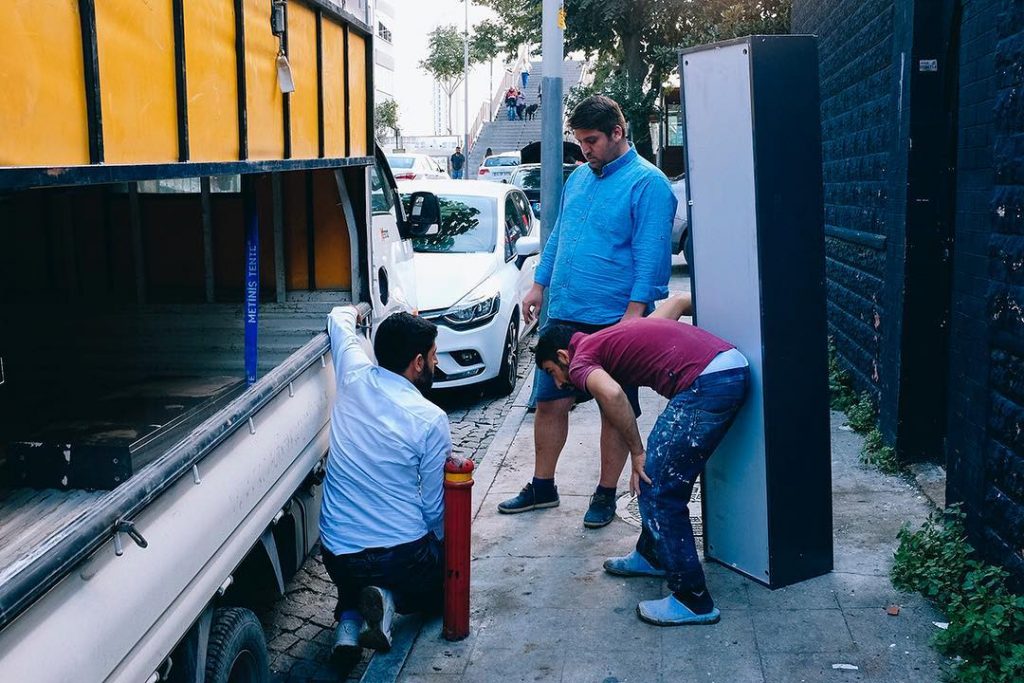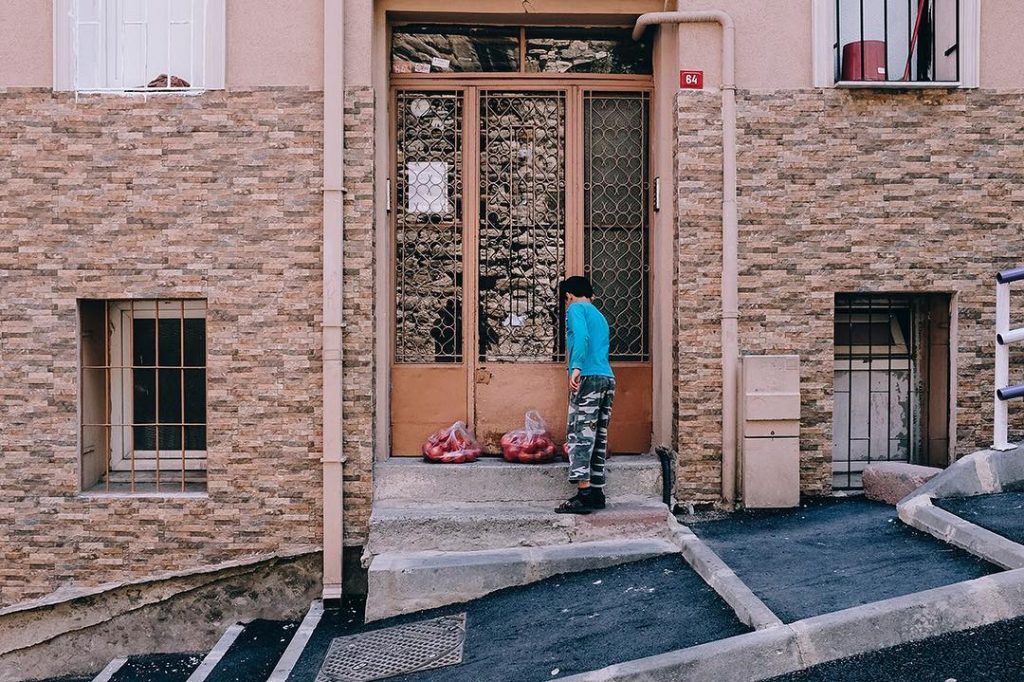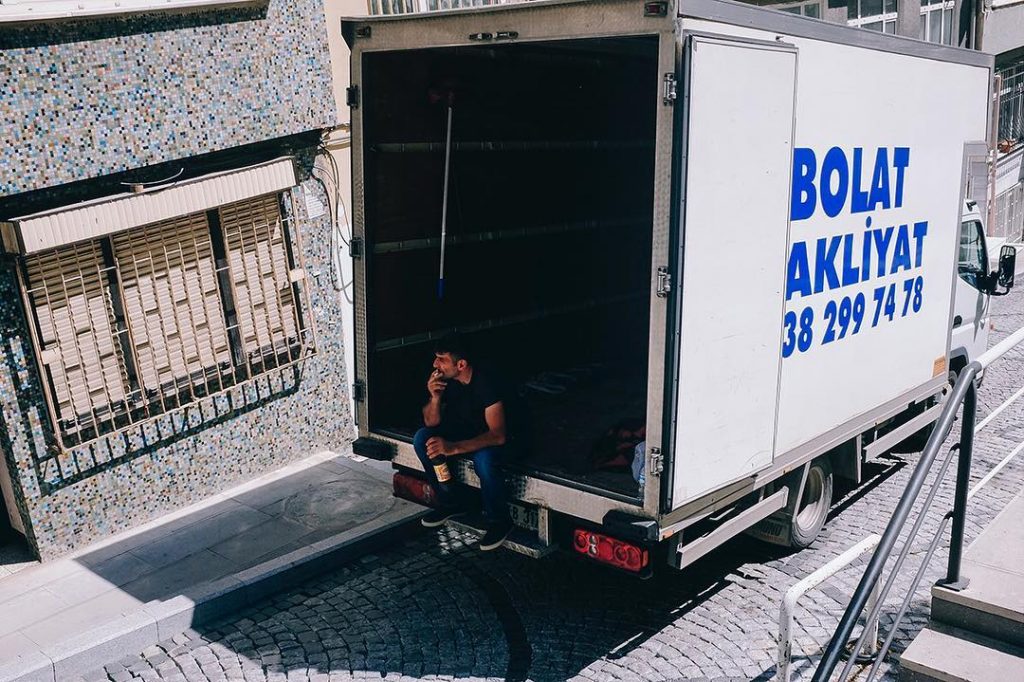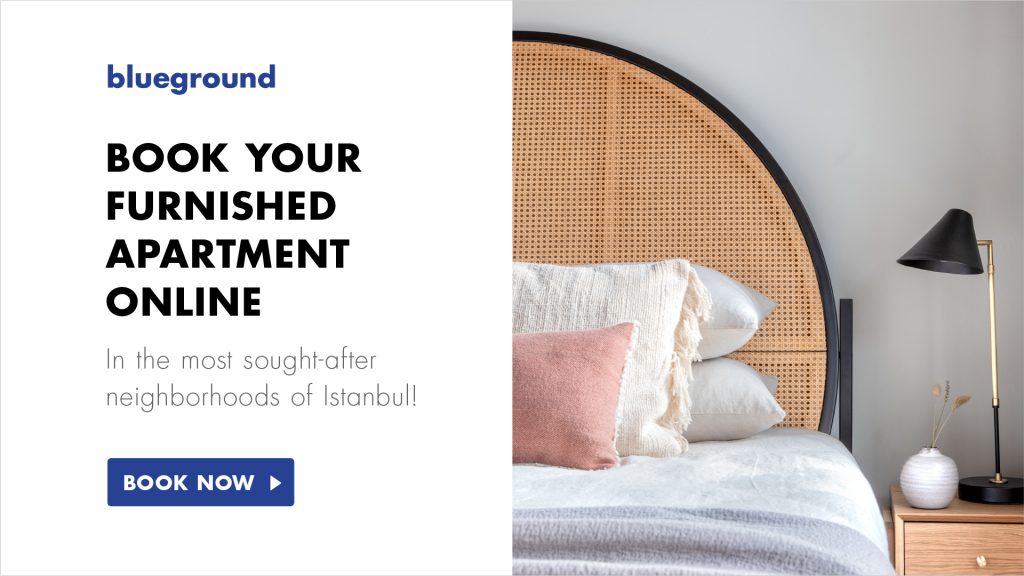Renting a flat in Istanbul can be a stressful, intimidating experience – especially for first-timers. There’s a lot to take into account and if you’re not careful, you might find yourself being taken advantage of. That being said, being cautious and thorough in your approach can find you living happily in an amazing flat in no time at all.
Your first decision, after deciding on a neighborhood, should be whether you’re looking to rent an entire flat through a real estate agent (emlak), a flat directly from an owner (sahibinden), through a specialized agency like Blueground providing furnished accommodation and support, or if you’re just searching for a room in a shared flat. Don’t know which is the best fit? Let’s break these options down and look at some pros and cons.

Through an emlak
For those not previously familiar with emlaks, you’ll now likely notice them everywhere. Their offices are scattered generously throughout every neighborhood in the city, typically filled with people who seemingly aren’t up to much work, but are in fact the real estate agents that keep Istanbul’s housing market ticking. An easy identifier is their street-front windows covered with some of the various properties in their market.
Renting through an emlak offers several benefits right out of the gates. First and foremost, their vast abundance means plenty of options to choose from. These options have their maximum price listed (great for making sure you don’t get taken advantage of), so you already have an idea of what’s available to you and what you’re going to try and negotiate down from. They also offer peace of mind in a legally binding contract, which tends to favor the rights of tenants and helps provide a bit of leverage over troublesome landlords. Perhaps most conveniently for yabancılar, emlaks also offer the luxury of at least a one-year contract, which provides the easiest path for proof of accommodation when applying for a residence permit. If you’re physically visiting emlak offices, they can immediately show you available apartments that fit your criteria and/or can help you network with nearby emlaks for more options. Finally, while it’s certainly a hassle that you have to set up utilities, having them all in your name is significantly more reliable both in regards to timely payments and managing heating in winter.
Of course, it’s not all unicorns and rainbows via the emlak route. First off, it’s expensive. Emlaks take a cut (roughly equal to the first month’s rent or 12%) and contracts often require a one or two month deposit. The vast majority of available housing is unfurnished, so if you’re not planning on a long-term stay, it might not be worth the investment in furniture. Also, on the rare occasion, emlaks themselves can be somewhat suspect. If in doubt, always use common sense, don’t do any sort of financial exchange unofficially, and if possible bring a local along and have them size up the situation. You should expect very little English in every step of the process, so it definitely helps to have someone to call on to look over your contract, clarify any final questions, etc. My general experience has been to try and finalize everything in the process individually and then simply bring along a local friend for a half hour to conclude with the contract signing and payment.
Perhaps the most discouraging aspect of the emlak process is, depending on who you are, they may opt to not show you apartments that are clearly available. Many landlords prefer to not rent to foreigners, unmarried couples, young people, etc. and emlakçıs (real estate brokers) generally have a good sense of the owner’s preferences. If you check several of these boxes, then it can be especially tough going, but try not to get offended. Persistence is key and if you get to chatting with an emlakçı, you can occasionally win them over into calling the owner and lightly vouching for you.
Some tips: While you can certainly use sites like Hürriyet Emlak and Sahibinden, the websites don’t always have every listing and photo quality is typically mediocre at best. The most effective method is to go to the neighborhood you hope to live in and start dropping by the emlak offices in person. Turkish isn’t a requirement for this stage (just write out your basic needs), but it obviously helps. Via this method, it’s not an exaggeration to say that you can see upwards of 20 apartments in an afternoon by dropping in the various offices.
Being reasonably honest in your approach tends to work best. A single guy in his early 20s trying to rent a 3-bedroom apartment is going to raise eyebrows. If you’re planning to live with friends or rent out a room, it’s probably best to explain this to the landlord to avoid issues down the road.
Like many aspects of life in Turkey, negotiation is definitely on the table, and fortunately in this case… it favors you. The rent requested is the ceiling, so when you meet your landlord-to-be, you can try and push this price down. You can also try to move away from the two-month deposit (if they’ve requested it). Finally, while negotiating with the emlakçı might be hard, you can almost certainly push back the payment date for his cut. You can likely expect to bump into your emlakçı pretty regularly around your future neighborhood, so it pays to try and have a civil/positive relationship with them.

Directly from the owner
The process of renting from an owner is certainly a simpler route to take and is more convenient for the average foreigner if all goes well. In fact, you’ll find plenty of home owners out there who specifically want to rent out their apartments to foreigners, and so we’ll cover these first. If giving the benefit of the doubt as to the reason behind this, it’s likely that they’re not expecting you to stay for more than a few years, and so they can expect to get their apartment back one day rather than having to deal with a tenant’s right to legally stay in an apartment in the long-term. These apartments are often properly furnished (usually with a more modern look than the furnished ones you’ll find with emlaks), often include all utilities already arranged, and it’s more likely the landlord speaks some English. Contracts can still be signed (especially relevant for residence permits) and you can often accommodate these more accordingly to the length of your wanted stay. So essentially, you simply need to bring your personal items, pay your agreed rent/utility fee on time, and you’re good to go.
Of course, there are downsides to this route. The most obvious, aside from there simply being less options to choose from, is that if they’re hoping to rent out to foreigners, it’s possible they simply want to charge a higher rate than they would to locals. It’s not unusual for them to charge in euros or dollars, so if you’re going to be making Turkish Lira here… definitely take this into account. If they’re including utilities in your rental fee, be sure and ask what the plan is for winter as gas gets very expensive, and if you don’t have control over a thermostat, then they may not have a huge interest in making sure you’re particularly warm. It’s also not unheard of to hear stories of some landlords here who will try to take advantage of a foreigner’s vulnerable position in various ways, which can include trying to arbitrarily raise rent, trying to get you to move out before the agreed upon date, not help you with basic housing needs like repairs, not return your deposit, etc. A rental contract (available at any kırtasiye) that you can go and get notarized certainly helps (and is needed for your residence permit), so if it seems they’re adamantly against this, give some extra consideration to whether or not it’s a good idea to rent.
Of course, you can also find flats from the owner not directly marketed to foreigners, which are a bit of a mixed bag but the core principles still apply.
Some tips: Try to be as formal as possible in your relationship with the owner. Notarizing your contract, making payments via the bank, etc. go a long way in avoiding any drama down the line. If you are to pay for your own utilities, request copies of the receipts so you can be sure you’re not overpaying.
Again here, you can filter appropriately and use Hürriyet Emlak and Sahibinden. Craigslist and Facebook flat-share groups also tend to have plenty of options, such as Foreigners Living in Istanbul, Foreigners in Istanbul, International Rooms & Flats in Istanbul, and Foreigners who Live in Istanbul.

Furnished accommodation through agencies like Blueground
Favored by both Istanbulites and foreigners, Blueground offers premium furnished apartments in a number of neighborhoods across the city. For those moving from abroad, Blueground’s homes can be booked online in advance so you can show up straight from the airport and have a home ready. That means arriving to functioning WiFi, utilities arranged and all housewares and furniture ready-to-go. Their fully furnished apartments are available starting at 30 days, though many choose to rent for the entirety of their time in Istanbul thanks to their flexible rental contracts. For those who are just starting to learn Turkish, ongoing support is available through their mobile application in English. Arranging cleaning and ad hoc repairs can be done in just three taps as well on Blueground’s mobile app.
Renting a room/flatsharing
In regards to convenience, this is often the easiest route. Renting a room is cheaper, the places are almost certainly furnished, and it’s easier to find flexible options in regards to length of stay.
The negatives here aren’t particularly unique to Turkey in any regard, as living with housemates always includes risks and most of the downsides are luck of the draw as to who you wind up living with. That being said, there are of course some situations to watch out for here. First, make sure you’re not overpaying for a room. If it seems like your rent is close to what you’d expect the entire apartment’s rent to be (try to get a sense of this from a local emlak office window), there’s a chance they’re having you cover a large part of their portion. Also, inquire about a contract, especially if interested in a residence permit. Worth noting is that if they’re also foreigners, your residence permit will only be as long as the validity of the permit of the person whose name is on the official rental contract. Also, be sure and ask if the landlord knows they’re renting out the room, to avoid potential drama down the line (if you care about this sort of thing).
If you’re keen to live with a local, some other Facebook groups in addition to the ones above include these two. If you’re an international student, there are also plenty of Erasmus groups with options.

Universal Truths
While lightly referenced above, it’s important to note that there are universal truths to apply when looking for new accommodation. Exercising common sense goes a long way in having things go smoothly. Explore your prospective neighborhood, make sure all the basics of your flat are working properly, take photos of move-in day for anything that they might try to subtract from your deposit later on, ask to speak to your potential neighbors, etc.
If you have any suggestions or resources that we should include, please let us know in the comments! Happy house hunting!
All images courtesy of Colin Craig.
Editor’s Note: This piece was originally published in 2017 and has been updated.











I want to rent a flat in Taqaseem., Istanbul for 7 night 8 days. Pls tell me how much.
Good information Tarik – thank you.